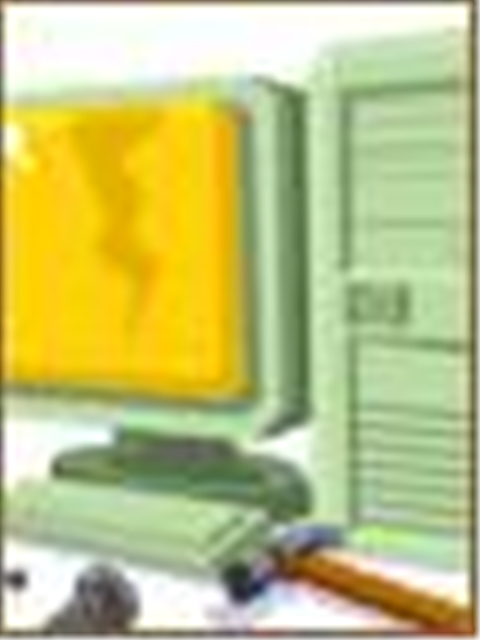It’s not been a great year for Hewlett Packard and the company’s attempts to restructure its channel arrangements have, it admits, not all been properly conceived and communicated, upsetting many of its partners.
Events like the embarrassing rigermarole over resellers being dropped from the NSW government’s ITS2000 contracts only served to fuel ill feeling towards HP amongst its partners, some of whom still think it inevitable that the company will one day go fully direct.
Since becoming president and CEO of HP in March of this year, Mark Hurd has announced a dramatic restructuring program for the company, including slashing 14,500, or roughly 10 percent of its workforce, as part of its attempts to reverse a slump in earnings, even though sales have been up substantially.
But after several years chasing what it and many others saw as a necessary proportion of direct business to compete with the likes of Dell, HP now says that it has reaffirmed its commitment to the channel as integral to its future growth.
Aided by various partner advisory boards and other groups, its charter for the channel now appears to be clearer and more targeted than it has been for years. The question remains whether it can retain this renewed commitment amid increasing threats to its market position from direct rivals and the Internet.
According to HP channel manager Martin Dare, the company does around $1 billion through the Australian channel and is clearly not about to turn its back on its 3,500-plus Australian partners. ‘Our channel remains one of the key ways that we go to meet our market.’
He outlined the increasing value of HP’s Partner Principle Forum which is designed to allow close consultation between the company and its partners to ensure the best model going forward. Around 40 partners participate in these HP says.
Still, the recent kafuffle surrounding HP’s restructure of its preferred supplier arrangements for NSW Government contracts remains a major embarrassment that is yet to be fully resolved. ‘We’ve learnt from this process – there was a break down in the process of ITS2000 communication and we recognise that,’ HP’s commercial sales manager Neil Campbell told CRN recently.
HP’s preferred supplier list for lucrative ITS2000 contracts was re-issued late December last year minus 11 Sydney resellers, none of whom were notified of the decision or received any subsequent explanation until more than six months later. Some of the resellers had been supplying HP to NSW government departments for more than 10 years.
This made a lot of people in the channel angry, and angrier when all 11 companies were asked to provide sales documentation to support their cases for reinstatement, despite several of the companies being long term, multimillion dollar suppliers.
Campbell said that the breakdown in communications occurred because none of the resellers had their own account managers within HP and were simply overlooked. Most were eventually referred to account managers in Malaysia. Some resellers says that these representatives lacked detailed information on the local cases, further frustrating their efforts for reinstatement.
John Grant, CEO of Brisbane-based reseller Data#3 sits on HP’s Asia Pacific channel advisory board and says that he can’t understand what went wrong in this case given that HP has endeavoured for years to improve its processes for dealing with the channel and preventing exactly what did occur.
‘If it’s true that companies were not advised, then that flies in the face of the documented rules of engagement and HP needs to fix that.’
And it wasn’t that long ago HP said that it had.
But John Foxe, director of IT National, one of the Sydney resellers dumped from ITS2000 is far from appeased: In fact his is ropable.
His company received an informal apology from HP some months back and was given assurances that it would be placed back onto the contract. IT National had been supplying HP to the NSW State government for over 15 years and only learned that it had been dropped from HP’s preferred supplier list when its existing customer State Rail said it could no longer buy from the company.
Now, after initially being told all was well, IT National, like the other 10 resellers dumped, has been told that it must still submit extensive documentation supporting its case for reinstatement.
‘They still want us to pull together a case as to why we should be put back onto to ITS2000 despite us receiving assurances that we were going to be put back on,’ Foxe says.
‘This is after being on the contract for 15 years and they won’t give us a reason for why they’ve taken us off’. It’s disgusting behavior.’
Still steaming, Foxe believes that HP’s lofty rhetoric about the importance of the channel is contradicted by its actions. ‘Somewhere within the organisation there is a core lack of understanding about what is required to generate loyalty amongst the resellers: The actions they have taken in regard to ITS2000 are just appalling,’ he says.
‘It sticks in my craw where I am required to justify my existence and we weren’t even given the dignity of being asked previously before we were cut off.’
Yet highlighting HP’s current lopsidedness, Foxe emphasises that he still enjoys ‘excellent working relationships’ with SME account managers and other staff.
‘Some parts of the organisation are working well while others like the government group are failing miserably.’




.png&h=142&w=230&c=1&s=1)

_(27).jpg&h=142&w=230&c=1&s=1)






.jpg&w=100&c=1&s=0)







_(1).jpg&q=95&h=298&w=480&c=1&s=1)



